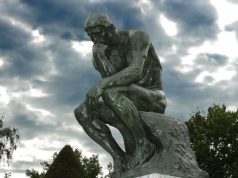“…mere legislation cannot emancipate women. This needs a radical change in our mental makeup and our social structure. For this, we shall have to foster a social emancipating spirit in our everyday life. The conservative male chauvinistic attitude shall have to give way to liberalism. It can be said with a sense of pride and confidence that the future of women in India is quite bright and prosperity will be safe in their hands.” Fairy Tales and Feminism: Refashioning Mother India
Must liberals be feminists?
A few years ago, I attended a weekend conference of the American Montessori Association in New Orleans, Louisiana. I was a Montessori high school teacher and was having lots of difficult experiences being in conflict with my students. Most of the speakers at the conference were women; many of them talked about the virtues of women in the classroom and in society at large. They talked about the need to overcome patriarchal prejudices and the things “men” could learn from femininity.
Frankly, this ticked me off!
I had already been a libertarian for years, believing in the fundamental dignity of individual life and the need for equality of all individuals before the law. But I was not a feminist. Because libertarians recognize that rights belong to individuals, not groups, I pooh-pooed the notion of giving special attention to particular forms of group oppression, especially of a cultural kind. “There’s no need to think about feminism in particular,” I thought. “When everyone is equal before the law, all minorities will be protected from force and coercion. End of story. How can these women keep going on and on about this anachronistic issue? There’s no oppression of women in America anymore!”
However, the base of my impatience was something else. These women were suggesting not only that women should be left alone, but that aspects of womanhood should be admired and emulated by all. I couldn’t ignore the implications of what they were saying and I didn’t like it. The truth was, I actually held chauvinistic feelings within myself—slight, but significant—and I started to realize it. Of course, I had always spoken against blatant chauvinism and in support of women’s rights and equality, but now I started to see that I did not hold women and feminine virtues in equal regard as I did men and masculine virtues.
Some of the virtues many women hold are love and a nurturing attitude without a desire to dominate and control. These are quintessential liberal virtues. I realized, though, that I had a desire for domination, I wanted to succeed at my job by dominating my students, by exerting myself and by overpower them. I was not loving and respecting their personhood as these women were advocating. Though I valued peace among nations, I was belligerent in my character. I disdained flexibility and gentility in women because I wanted to exalt my thick-headedness.
So at first, I didn’t respond to this revelation with gratitude. I felt angry that these women were challenging my feeling of self-satisfaction and superiority. More than that, I felt angry that they were making me aware of these feelings and were causing me to challenge them within myself.
Yet, deep down I knew that these presenters were right, that the character traits they were honouring deserved to be honoured.
One of the reasons this conflict surfaced was that I had recently read several books highlighting the foolishness of the notion that all problems could be solved by exerting force (a manly virtue and vice), especially when it comes to life, human life, and social relations. Among these books were the works of Maria Montessori, Seven Life Lessons of Chaos, and Bourgeois Virtues by Deidre McCloskey. And get this, the author, now a woman, had once been a man! (Maybe she knew a thing or two I didn’t.)
Battling against my prejudice were my conscious commitments to liberal principles and the belief in the fundamental, spiritual equality and dignity of all individuals. I knew that human relations based on mutual respect and freedom were better than those imposed by authoritarian dictate and control. I also admired certain women, among whom were Isabel Paterson, Ayn Rand, Maria Montessori, Deirdra McCloskey and Mary Baker Eddy. These were great individuals, extraordinary thinkers and doers. How could I admire these women and not admire them as women?
I remember walking the streets of New Orleans, struggling on a deep, emotional level with these internal contradictions. It was like a chemical process working itself out. This process churned and churned and effected a deep personal transformation in me that weekend. Ultimately I developed a new sense of self, a new perspective that honoured women and femininity, a new unity of mind and heart, of principle and love, a new sense of liberalism. The new sense of liberalism I developed was positive, not negative. It was not only about ignoring people with equal indifference, but it was about honouring all individuals with sincere respect. I realized that this positive liberalism required more than a verbal commitment to equality in terms of law; it demanded that people actually be treated with respect and freedom and that cultural and personal prejudices contrary to this respect and freedom must be addressed if this kind of liberalism is to be realized.
With this new perspective, I started to develop a new humanity and a new kind of relationship with others (including my students) based on respect. This new attitude brought about much more happiness and harmony in my life. I now honour femininity and strive to embody feminine virtues along with the masculine. I’m grateful to those women and men who helped me grow in this respect.
Post Disclaimer
The opinions expressed in this essay are those of the authors. They do not purport to reflect the opinions or views of CCS.





